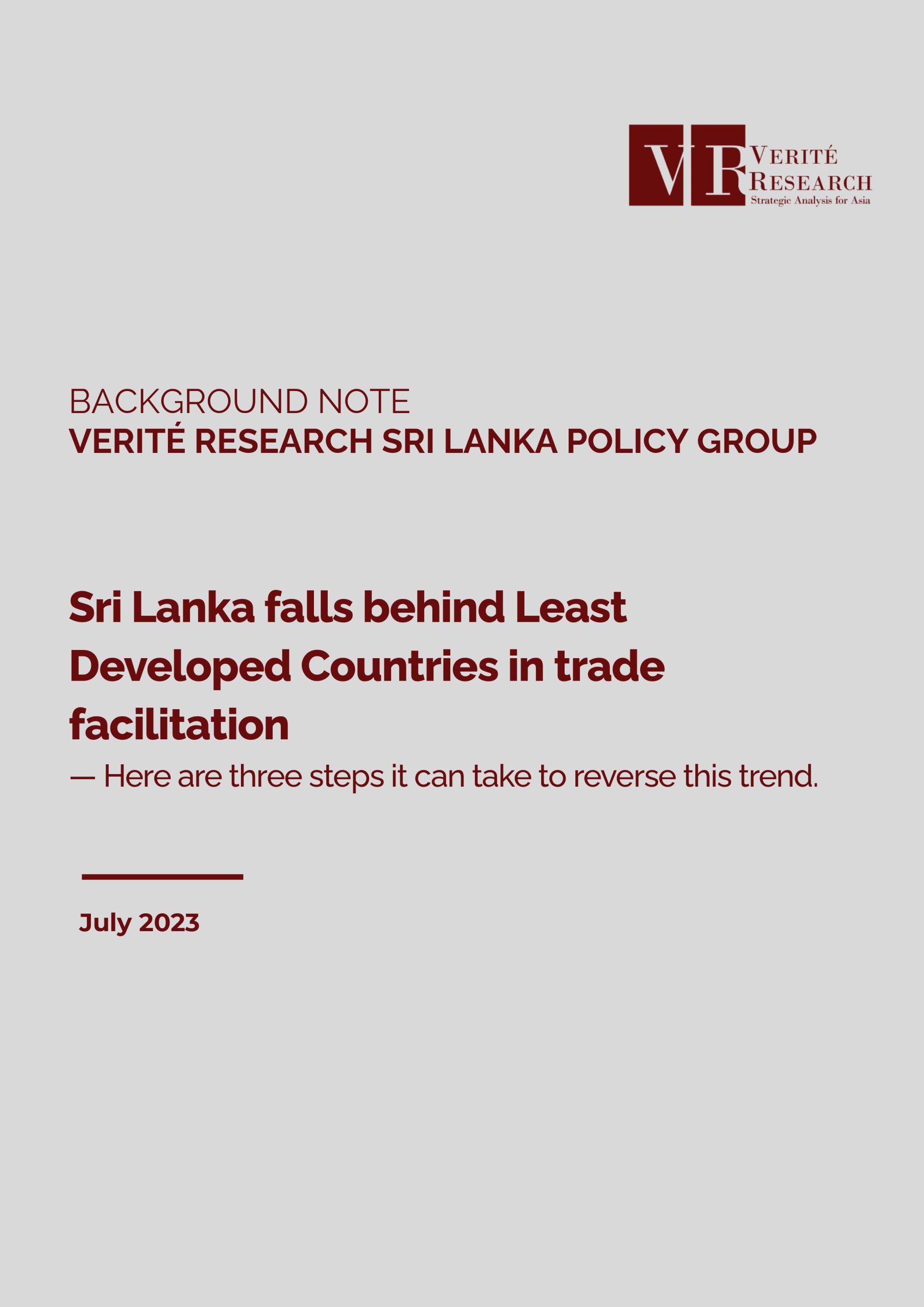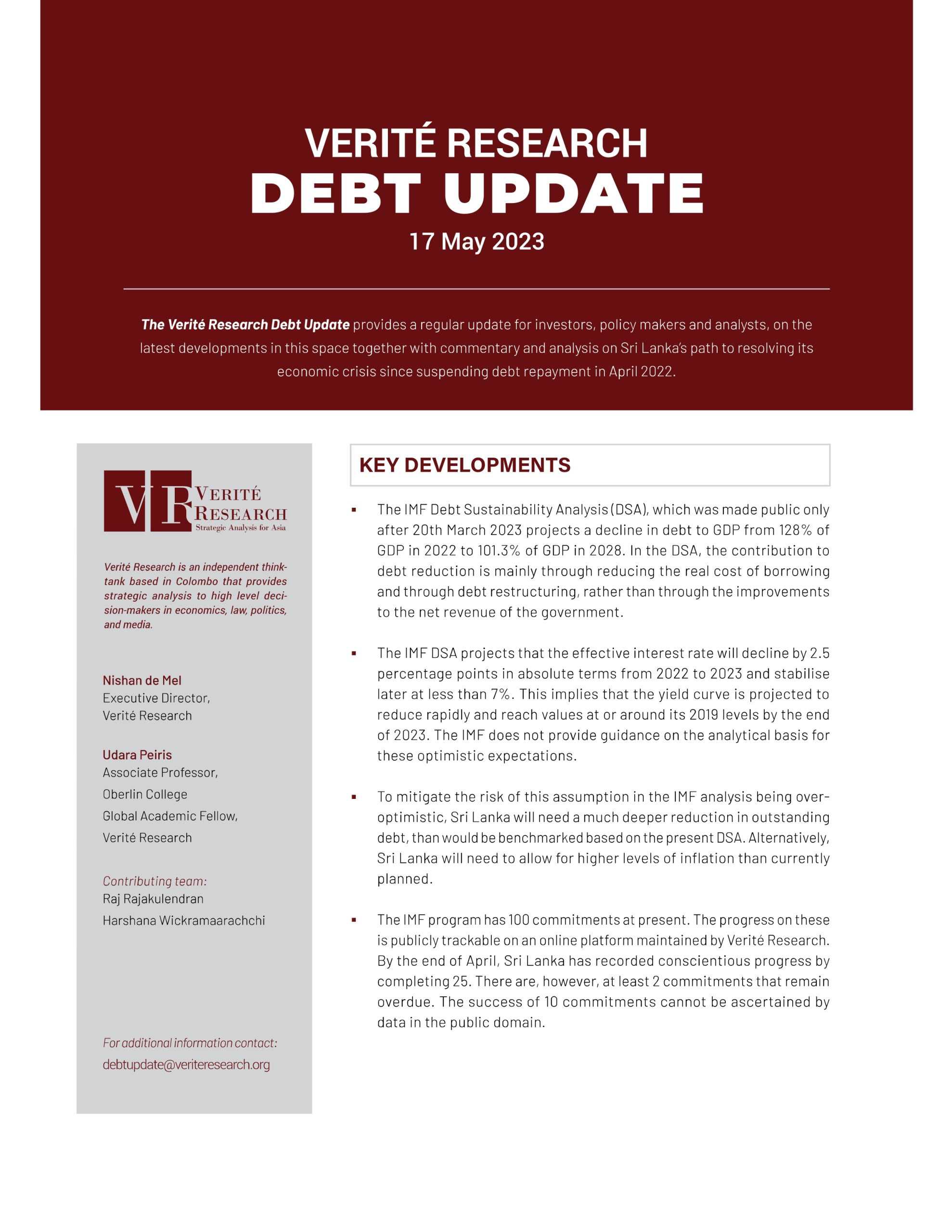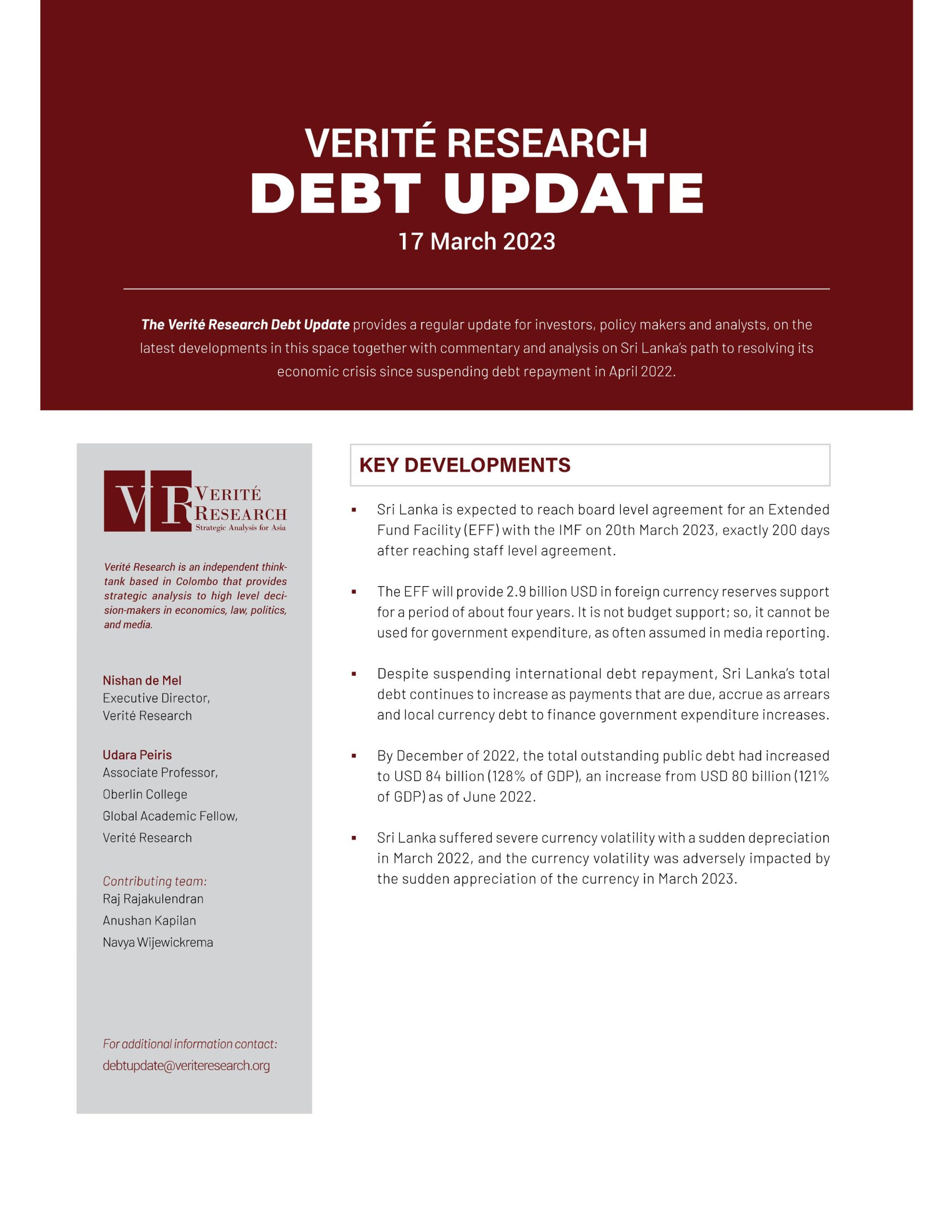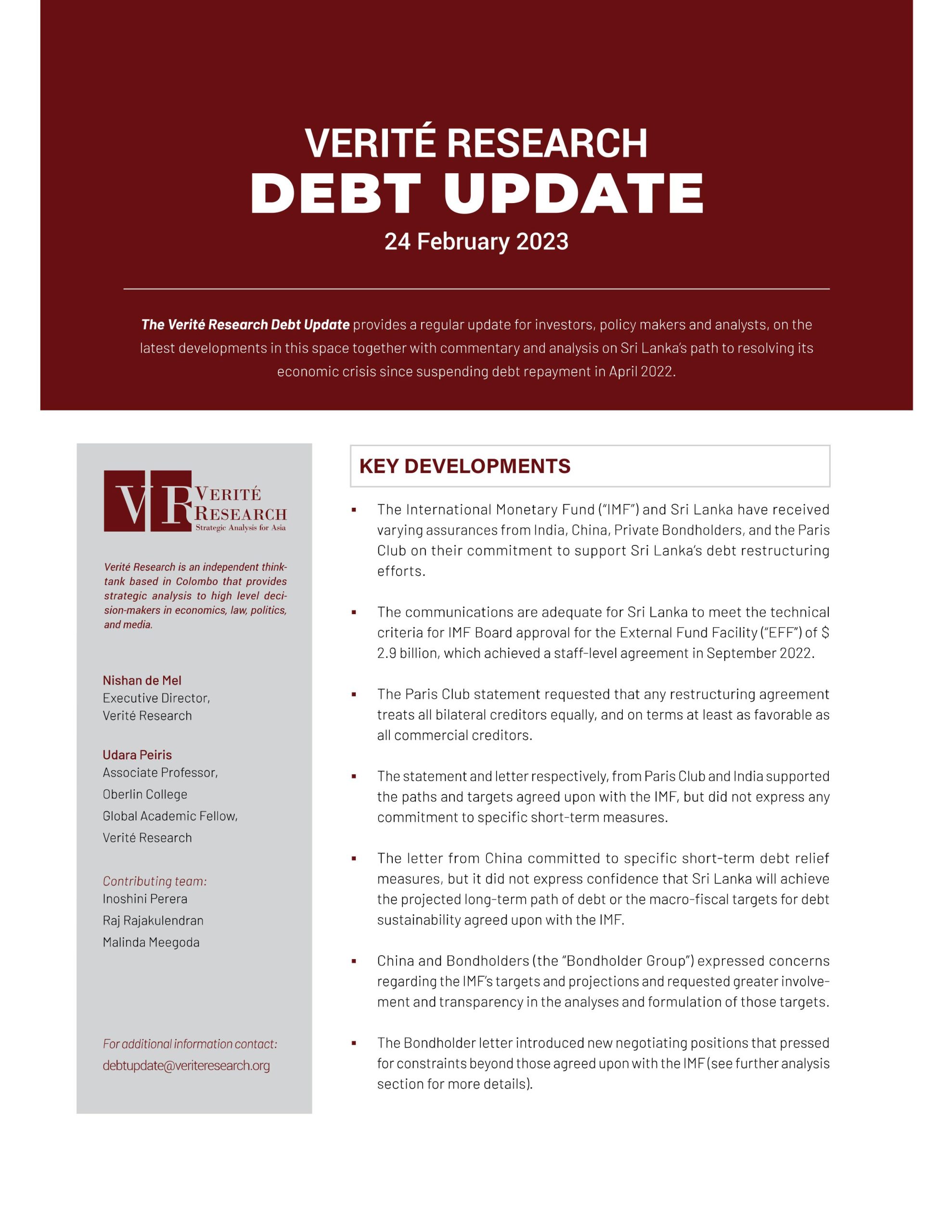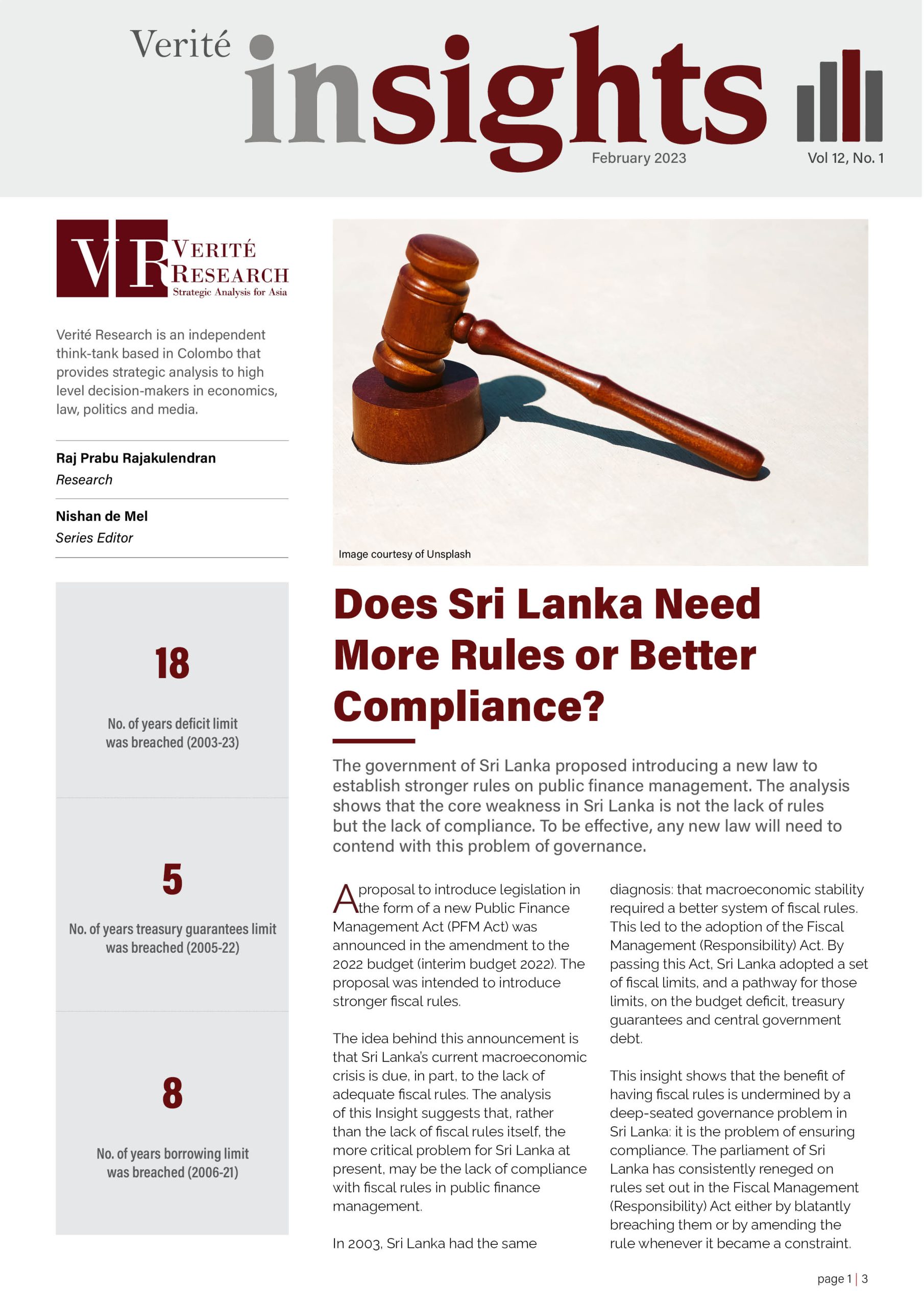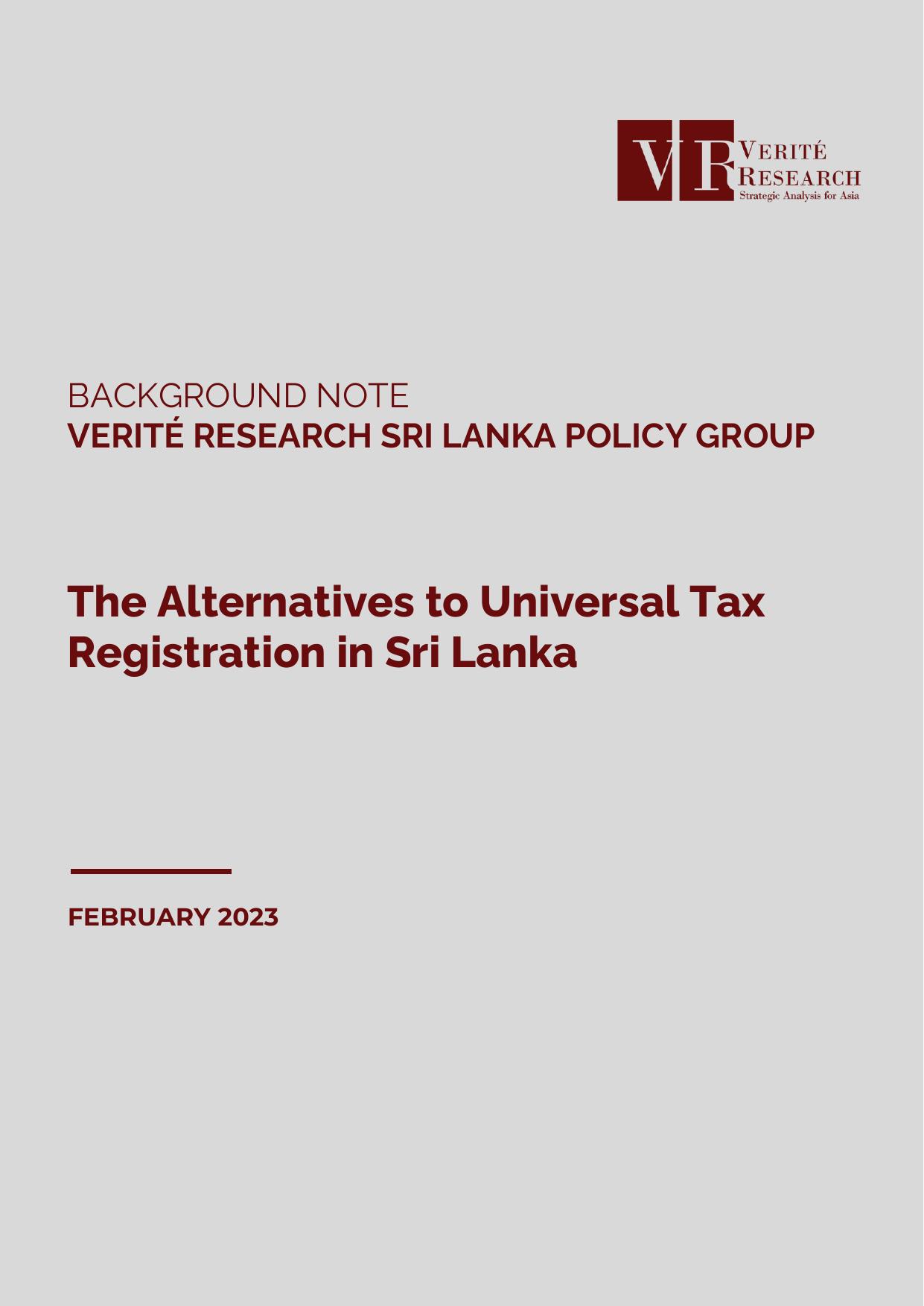While there may be numerous factors contributing to Sri Lanka’s sluggish export performance, this background note highlights an important one that puts Sri Lankan exporters at a disadvantage: the failure of the government to facilitate trade by making import and export procedures efficient, less costly, more predictable, and transparent. The comparison is done by using the notifications on progress made by countries under the World Trade Organisation’s Trade Facilitation Agreement (TFA) as a yardstick. The analysis finds that Sri Lanka’s progress falls below not only its competitors and peers but also the least developed countries. Out of the 125 developing and least developed countries, Sri Lanka (ranked 104th) is among the countries that have made the least progress in implementing measures to facilitate trade. Based on the findings, this note provides three lessons Sri Lanka can learn from the experience of others and provides an indicative list of ten measures Sri Lanka can prioritise to implement.
In 2010, Sri Lanka established a unique framework, overseen by the Standing Cabinet Appointed Review Committee (SCARC), to handle unsolicited proposals (USPs) for public infrastructure funding. These USPs inherently bypass traditional competitive bidding in procurement. The report, ‘Foregoing Competition to Secure Funding for Public Infrastructure: One-Third of Funding Secured was Non-Concessional’, scrutinizes this framework. It reveals a significant discrepancy between the framework’s intended purpose of improving USP evaluation and the actual outcomes, with a substantial portion of the funding secured through SCARC being non-concessional in nature. The report identifies two vulnerabilities in the existing procurement framework that need urgent attention: the Cabinet’s unchecked power to modify procurement guidelines, and SCARC’s ability to approve projects non-compliant with even the minimum criteria outlined without repercussions.
This edition provides coverage and analysis of the IMF Debt Sustainability Analysis (DSA) and Sri Lanka’s progress on the 100 commitments outlined in the IMF program
This edition includes coverage and analysis on the usability of the IMF financing and the volatility of the exchange rate.
This inaugural edition of our latest publication series known as ‘Verité Research Debt Update. ’Sri Lanka is currently experiencing a financial crisis on an unprecedent scale. In May 2022, Sri Lanka defaulted on its debt servicing obligations for the first time in its history since independence. Against this backdrop, the Verité Research Debt Update provides a regular update for investors, policy makers and analysts, on the latest debt related financial news together with a brief analysis on the latest developments. This edition includes coverage and analysis on the financial assurance letters issued by China, India and a group of private bond holders.
The government of Sri Lanka proposed introducing a new law to establish stronger rules on public finance management. The analysis shows that the core weakness in Sri Lanka is not the lack of rules but the lack of compliance. To be effective, any new law will need to contend with this problem of governance
This note argues that the Sri Lankan government’s recent proposal to implement universal tax registration is neither a viable nor effective strategy to increase the country’s tax revenue. Instead, the note proposes four alternative measures that are more feasible, while still serving the same purpose of expanding the tax base and generating more revenue.
Fair and effective recruitment practices have a significant impact on preventing and countering human trafficking. Universally accepted principles of fair recruitment suggest that workers should be well-informed of all aspects of employment, including the nature of the employment, payment mechanisms, access to dispute resolution, and safe return.
Exposure to poor air quality is ranked among the top 10 leading global risk factors for disease. The lack of visibility of air pollution often results in delay in public policy and personal responses, till the problem is acute. Improving the collection and access of air quality data is the first step, to making it safe to breathe in Sri Lanka.
This is the second report in a series of two reports on Sri Lanka’s central government budget for the year 2022. The report assesses whether the expenditure allocations and taxation policies are in line with the government’s policy.
